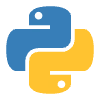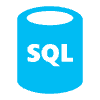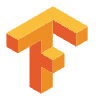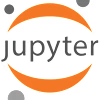Data Science Freelancers: Specialized Skills That Can Transform Your Business

Data Science Freelancers: Specialized Skills That Can Transform Your Business
Why Businesses Look to Freelance Data Science
Five Specialized Skills That Deliver Results
1. Advanced Machine Learning & AI
2. Cloud Infrastructure & Big Data Tools
3. Data Visualization & Storytelling
4. Domain-Focused Expertise
5. Ongoing Learning & Adaptability
How to Spot the Right Freelancer for Your Needs
Maximizing Your Investment With Commission-Free Platforms
Frequently Asked Questions About Data Science Freelancers
Is data science good for freelancing?
Which skill is best for data science?
What is the hourly rate for a freelance data scientist?
Which two skills are most important for a data scientist?
Key Takeaways for Transforming Your Business
Data Science Freelancers: Specialized Skills That Can Transform Your Business
“Your in-house team knows your business. A freelancer knows how 10 other businesses solved the same problem last quarter.”
Why Businesses Look to Freelance Data Science
Five Specialized Skills That Deliver Results
1. Advanced Machine Learning & AI
"You haven’t lived until you’ve watched a model outperform a 12-tab spreadsheet someone’s been manually updating for 3 years."
2. Cloud Infrastructure & Big Data Tools
3. Data Visualization & Storytelling
4. Domain-Focused Expertise
5. Ongoing Learning & Adaptability
"Freelancing in data science is 30% doing the work, 70% Googling just slightly better ways to do the work."
How to Spot the Right Freelancer for Your Needs
Maximizing Your Investment With Commission-Free Platforms
“You’re not paying for the platform’s cut. You’re paying for the work.”
“The best freelance relationships don’t end after one project. They evolve into ongoing partnerships—without platform interference.”
Frequently Asked Questions About Data Science Freelancers
Is data science good for freelancing?
“It’s the kind of work where you can finish a project, close the laptop, and move on—until the next dataset shows up.”
Which skill is best for data science?
What is the hourly rate for a freelance data scientist?
“The model is free—the rate is for knowing which one not to use.”
Which two skills are most important for a data scientist?
Key Takeaways for Transforming Your Business
“It’s not about hiring for potential. It’s about hiring for the exact thing you need done next week.”
Posted Apr 10, 2025
Data science freelancers with specialized skills in AI, ML, and analytics help businesses solve complex problems faster and more efficiently.











